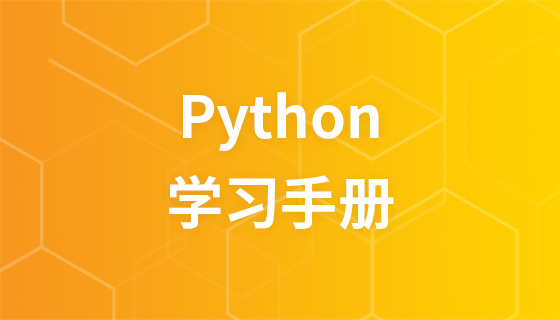使用enum class和std::variant可实现类型安全:enum class提供作用域和显式转换,避免非法值;std::variant替代传统联合体,结合标记类型和访问检查,确保类型安全并防止未定义行为。

联合体、枚举和组合,在C++里确实提供了相当灵活的数据表示方式。但类型安全,这才是关键!枚举能限定取值范围,联合体节省空间,组合则能构建复杂结构。问题在于,如何确保这些组合不会引入潜在的类型错误?
类型安全的枚举能有效防止非法值的出现,而更进一步,我们可以考虑使用强类型枚举,它能避免枚举值之间的隐式转换,让代码更健壮。至于联合体,它的类型安全问题确实比较棘手,但我们可以通过一些设计模式来规避风险。
C++11引入的
enum class
enum
enum class
uint8_t
enum class Color : uint8_t {
Red,
Green,
Blue
};
Color c = Color::Red;
// int i = c; // 错误:不能隐式转换为int
int i = static_cast<int>(c); // 正确:显式转换使用
enum class
Color
int
立即学习“C++免费学习笔记(深入)”;
联合体允许在相同的内存位置存储不同类型的数据。虽然这在某些场景下非常有用,但同时也带来了类型安全问题。如果错误地读取了联合体中未激活的成员,可能会导致未定义行为。
为了保证联合体的类型安全,可以采用以下几种方法:
enum class DataType {
Int,
Float,
String
};
struct Variant {
DataType type;
union {
int i;
float f;
std::string s;
};
};
void process(Variant& v) {
if (v.type == DataType::Int) {
std::cout << "Int: " << v.i << std::endl;
} else if (v.type == DataType::Float) {
std::cout << "Float: " << v.f << std::endl;
} else if (v.type == DataType::String) {
std::cout << "String: " << v.s << std::endl;
} else {
// 处理未知类型
}
}std::variant
std::variant
#include <variant>
#include <string>
#include <iostream>
std::variant<int, float, std::string> v;
v = 10;
std::cout << std::get<int>(v) << std::endl;
v = 3.14f;
std::cout << std::get<float>(v) << std::endl;
v = "hello";
std::cout << std::get<std::string>(v) << std::endl;
// 错误:尝试访问不存在的类型
// std::cout << std::get<double>(v) << std::endl;
try {
std::cout << std::get<float>(v) << std::endl; // v现在是string
} catch (const std::bad_variant_access& e) {
std::cerr << "Error: " << e.what() << std::endl;
}假设我们需要设计一个配置系统,允许存储各种类型的配置项,例如整数、浮点数、字符串和布尔值。我们可以结合使用枚举、联合体和
std::variant
enum class
enum class ConfigType {
Int,
Float,
String,
Bool
};std::variant
std::variant
#include <variant> #include <string> using ConfigValue = std::variant<int, float, std::string, bool>;
ConfigItem
class ConfigItem {
public:
ConfigItem(const std::string& name, ConfigType type, ConfigValue value)
: name_(name), type_(type), value_(value) {}
std::string getName() const { return name_; }
ConfigType getType() const { return type_; }
ConfigValue getValue() const { return value_; }
private:
std::string name_;
ConfigType type_;
ConfigValue value_;
};ConfigManager
#include <map>
class ConfigManager {
public:
void addConfigItem(const ConfigItem& item) {
configItems_[item.getName()] = item;
}
// 获取配置项的值,并进行类型检查
template <typename T>
T getConfigValue(const std::string& name) const {
auto it = configItems_.find(name);
if (it == configItems_.end()) {
throw std::runtime_error("Config item not found: " + name);
}
const ConfigItem& item = it->second;
try {
return std::get<T>(item.getValue());
} catch (const std::bad_variant_access& e) {
throw std::runtime_error("Invalid config type for item: " + name);
}
}
private:
std::map<std::string, ConfigItem> configItems_;
};#include <iostream>
int main() {
ConfigManager configManager;
configManager.addConfigItem({"server.port", ConfigType::Int, 8080});
configManager.addConfigItem({"server.host", ConfigType::String, std::string("localhost")});
configManager.addConfigItem({"debug.enabled", ConfigType::Bool, true});
try {
int port = configManager.getConfigValue<int>("server.port");
std::string host = configManager.getConfigValue<std::string>("server.host");
bool debugEnabled = configManager.getConfigValue<bool>("debug.enabled");
std::cout << "Server Port: " << port << std::endl;
std::cout << "Server Host: " << host << std::endl;
std::cout << "Debug Enabled: " << debugEnabled << std::endl;
// 尝试获取错误类型的配置项
// float invalidValue = configManager.getConfigValue<float>("server.port"); // 会抛出异常
} catch (const std::runtime_error& e) {
std::cerr << "Error: " << e.what() << std::endl;
}
return 0;
}这个配置系统结合了枚举、
std::variant
std::variant
getConfigValue
联合体的大小通常等于其最大成员的大小。这意味着,如果联合体中包含一个很大的成员,即使其他成员很小,联合体也会占用大量的内存。此外,内存对齐也会影响联合体的大小。
为了避免联合体带来的内存对齐问题,可以考虑以下几种方法:
手动控制内存布局:使用
#pragma pack
使用std::aligned_storage
std::aligned_storage
std::aligned_storage
优化联合体成员的顺序:将大小相近的成员放在一起,可以减少内存对齐带来的额外空间占用。
总而言之,C++联合体、枚举和组合提供了强大的数据表示能力,但类型安全是关键。通过使用强类型枚举、
std::variant
以上就是C++联合体枚举组合 类型安全枚举使用的详细内容,更多请关注php中文网其它相关文章!

每个人都需要一台速度更快、更稳定的 PC。随着时间的推移,垃圾文件、旧注册表数据和不必要的后台进程会占用资源并降低性能。幸运的是,许多工具可以让 Windows 保持平稳运行。




Copyright 2014-2025 https://www.php.cn/ All Rights Reserved | php.cn | 湘ICP备2023035733号